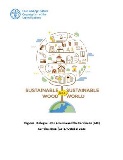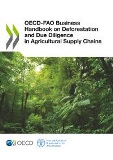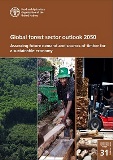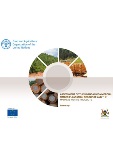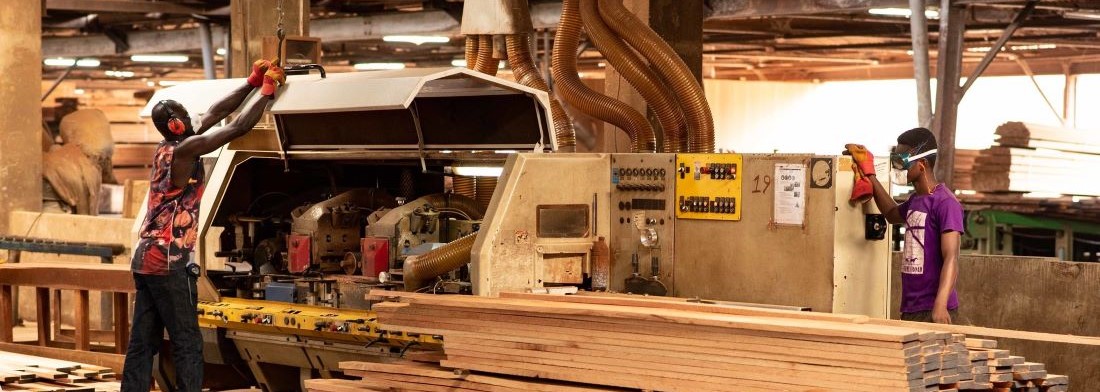
Sustainable Wood for a Sustainable World
Sustainable Wood for a Sustainable World (SW4SW) promotes sustainable wood products and their value chains by advancing nature-based solutions to tackle the climate emergency and contribute to the achievement of the Sustainable Development Goals. A joint initiative of the Collaborative Partnership on Forests (CPF), SW4SW works with governments, private sector, civil society, and academia in developing and strengthening sustainable wood value chains to further generate social, economic and environmental benefits throughout production and consumption.
Established in 2018, SW4SW is led by FAO and co-led by the International Tropical Timber Organization (ITTO) working together with the Center for International Forestry Research (CIFOR), the Secretariat of the Convention on International Trade in Endangered Species of Wild Fauna and Flora (CITES-Secretariat), the World Bank and the International Union of Forest Research Organizations (IUFRO).
- Benefits from sustainable wood products and their value chains are fully recognized in international policy dialogues, sustainable development and climate change strategies and national policy frameworks.
- Capacity to manage forests for sustainable wood production in the context of sustainable land management is developed at all levels.
- Markets and finance for sustainable wood value chains and sustainable wood products are broadened.
- Sustainable wood value chains and contributions of sustainable wood products to the bioeconomy and circularity approach are strengthened in both developed and developing countries.
SW4SW directly contributes to the attainment of Sustainable Development Goals 1, 5, 7, 8, 11, 12, 13, 15 and 17, the Global Forest Goals of the UN Strategic Plan on Forests, and the agreements under the UN Framework Convention on Climate Change (UNFCCC).
Despite these positive impacts, sustainable production and consumption of wood products have received little attention on the international development agenda, partly due to persistent unsustainable practices. This has contributed to low levels of finance and poor marketing for sustainable wood value chains. It is therefore crucial to increase the visibility of the benefits of sustainable wood production and consumption, shifting mindsets to encourage a more positive and responsive attitude to develop and strengthen sustainable wood value chains.
Joint efforts are essential to improve understanding of (i) what sustainable wood value chains entail; (ii) where they can be found, created or strengthened; (iii) what business models are associated with them; and (iv) how they can better contribute to achieving development goals at different levels.
SW4SW encourages the due consideration of wood as sustainable material to drive the achievement of improved forest management, enhanced livelihoods, and climate-resilient societies. The initiative aims to improve decision making, catalyze investments, and disseminate vital innovation to include sustainable wood production and use in strategies and action plans to achieve the Sustainable Development Goals, Global Forest Goals, the UN Decade of Ecosystem Restoration, UN Decade of Family Farming, Green Cities, and climate change objectives.
Which groups does it target?
The initiative targets primary wood value chain stakeholders (including producer associations), industry associations, small and medium enterprises (SMEs), policymakers, governments, the financial sector, non-forest sectors, consumers, multilateral mechanisms and opinion shapers.
What is the approach?
As an umbrella initiative, SW4SW relies on the collaborative activities of its partner organizations (and a broad range of stakeholders along the value chains) to improve decision-making in public and private sectors. It catalyzes action through engagement with relevant stakeholders in policy dialogues, investment forums and value chain assessments while raising awareness through activities which deliver priority roadmaps and create momentum. SW4SW supports the development of policy and legal frameworks, institutional arrangements, knowledge generation and dissemination, market solutions and resource mobilization, including through the promotion of positive linkages with other environmental and socioeconomic interventions.








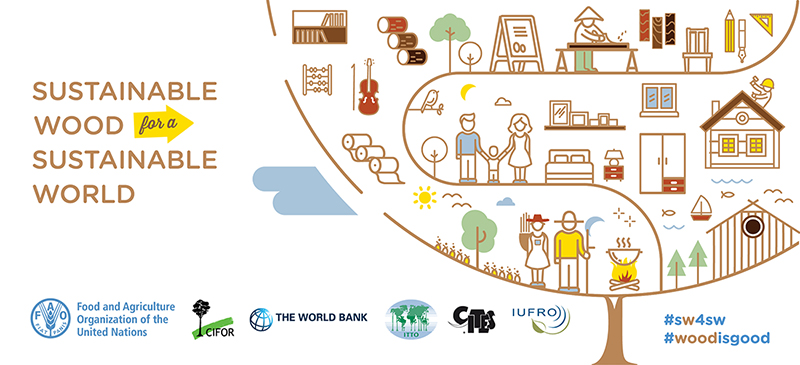
Related links
- XV World Forestry Congress Ministerial forum on sustainable wood
- International Commission on Poplars and Other Fast-Growing Trees Sustaining People and the Environment
- Collaborative Partnership on Forests
- Advisory Committee on Sustainable Forest-based Industries
- Wood for Globe project
Events
| Year | Meeting Title | Meeting Report |
|---|---|---|
| 2024 |
Global policy dialogue: Advancing sustainable wood policy and science for carbon-neutral and resilient economiesRome (Italy), Hybrid Event, 25/03/2024 |
|
| 2023 |
5th International Congress on Planted ForestsNairobi (Kenya), 07/11/2023 - 10/11/2023 |
|
| 2023 |
SW4SW Regional Dialogue in Latin America and the CaribbeanCuritiba (Brazil), 15/10/2023 - 17/10/2023 |
|
| 2023 |
Symposium: Sustainable forest value chains for more resilient, inclusive and carbon-neutral economies in the face of environmental challengesMendoza (Argentina), 28/03/2023 |
|
| 2022 |
II SW4SW Dialogue in Cameroon: Strengthening the domestic wood value chain by adding value, improving efficiency, inclusion and competitiveness - the role of the Wood Promotion CentreDouala (Cameroon), 01/12/2022 - 02/12/2022 |
News
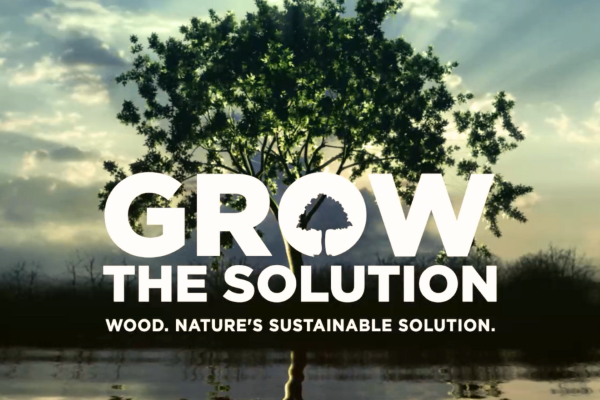
Grow the Solution initiative aims to promote wood-based products for climate
06/05/2024

FAO and EU launch 15 million euro project to boost sustainability of Uganda’s forestry sector
10/04/2024

Planted forests key to achieving global goals – FAO journal
10/11/2023
Publications
Sustainable wood: The manifesto
Over the centuries, we’ve moved away from using wood as a building material, at great cost to the planet.
06/12/2022



